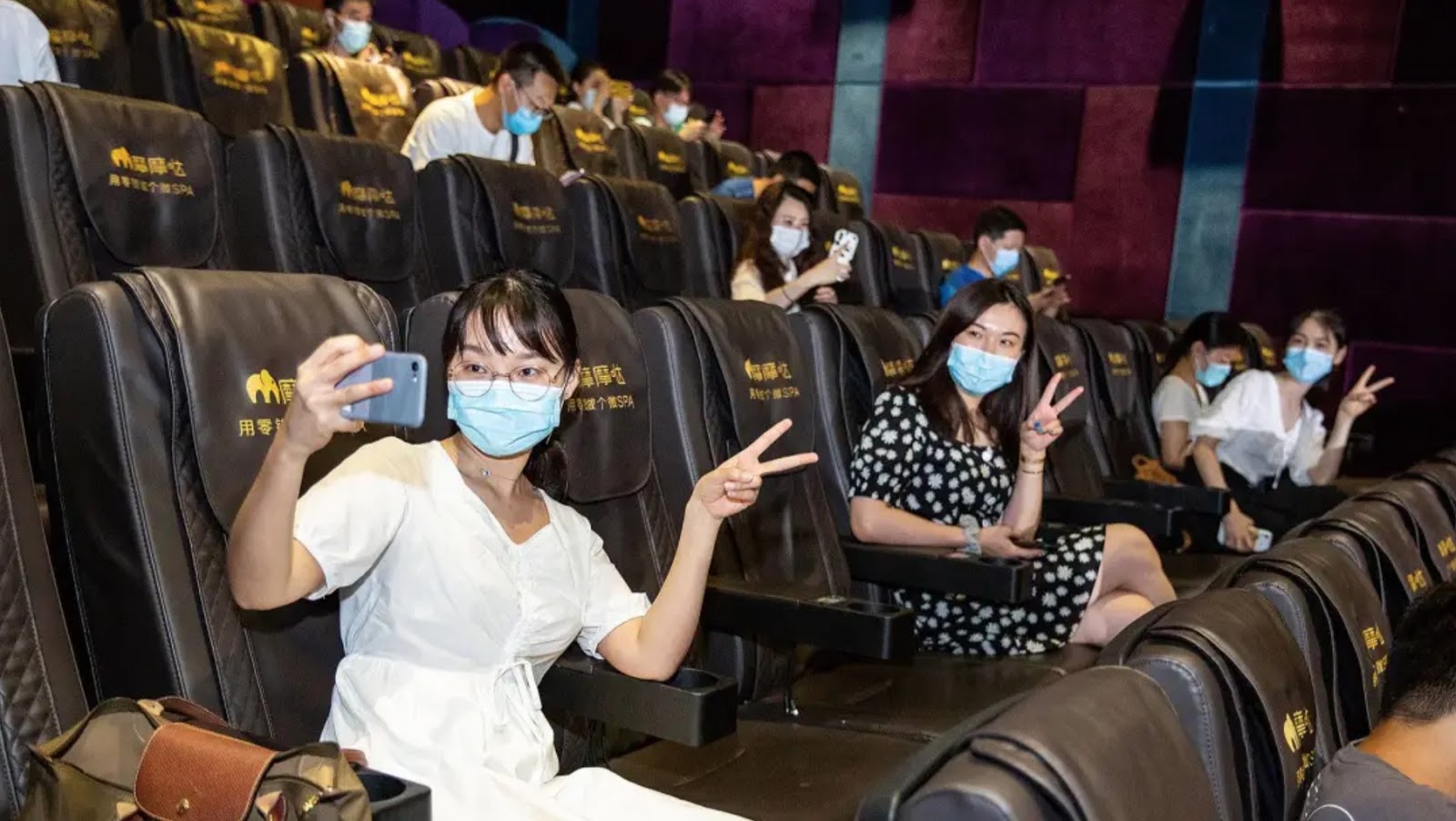China’s box office rakes in over 3 million yuan on first day of cinema reopenings
On Monday, most movie theaters across China were allowed to open their doors, after being shuttered for roughly six months because of the COVID-19 pandemic.

On Monday, most movie theaters across China were allowed to open their doors, after being shuttered for roughly six months because of the COVID-19 pandemic.
Dengta, a major Chinese online ticketing platform owned by Alibaba, reported (in Chinese) that on the first day of cinema reopenings, around 835 locations went back to business, selling a total of over 152,000 movie tickets from nearly 10,000 screenings.
With 30% seating limitations and a host of other restrictions, the total box office takings on July 20 were about 3.3 million yuan ($472,500), down more than 90% versus the same period in 2019.
The offerings were a mix of past blockbusters such as Wolf Warrior 2, a 2017 patriotic action film that broke the country’s box office record at that time, as well as new entries like A First Farewell, an award-winning Xinjiang art-house film, which accounted for about 27% of all the screenings.
The Deadline reports that an array of Hollywood titles, whose Chinese releases were postponed due to the cinema closure since January, are likely to hit theaters later this month. They include the Oscar-winning war drama 1917 and the family action-comedy Sonic the Hedgehog.
Meanwhile, ticket sales for special screenings of over 300 movies during the Shanghai International Film Festival, which is set to take place from July 25 to August 7, have been going strong. As Sixth Tone reports, tickets for the festival went in a flash as more than 100,000 tickets were snapped up within 10 minutes when online booking kicked off on Monday morning. Now enthusiastic movie lovers are scrambling to secondhand marketplaces to find tickets for resale, some of which are priced as high as 1,500 yuan ($215).
Last Friday, the China Film Administration announced (in Chinese) the reopening of movie theaters in low-risk areas for coronavirus infection as the country continues to lift restrictions put in place to stop the spread of COVID-19. Under the new guidelines, cinemas are required to implement a host of heightened safety protocols and hygiene measures, such as health screenings for employees and mandated cleaning between each show.
While China’s beleaguered moviegoing business, which is estimated to lose 30 billion yuan ($3 billion) this year because of the coronavirus shutdowns, is welcoming the reopening, many of the nation’s small and independent movie theaters are unable to resume normal operations anytime soon for a variety of reasons. In an interview (in Chinese) with the China News Weekly, a senior employee at Wanda, China’s largest theater operator, said that a lot of small theaters he knew chose not to open doors on Monday due to financial concerns.
“It’s almost impossible to make money in the early days of reopening. Most of the theaters that have resumed business were ready to operate in the red just to test the waters. Big chains can afford that loss, but opening with social distancing measures in place is not financially viable for most small venues,” he said.






